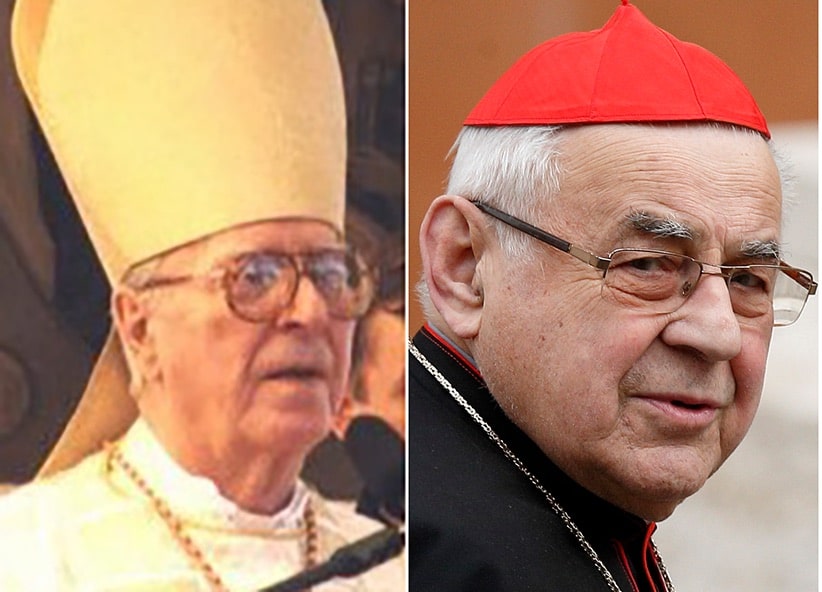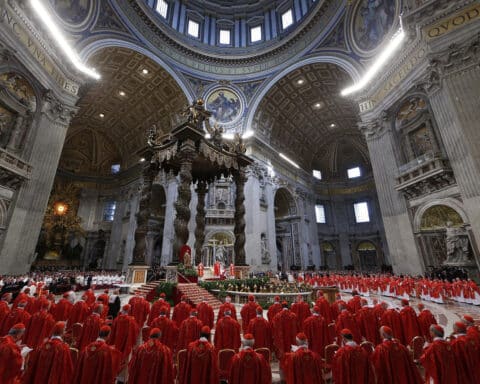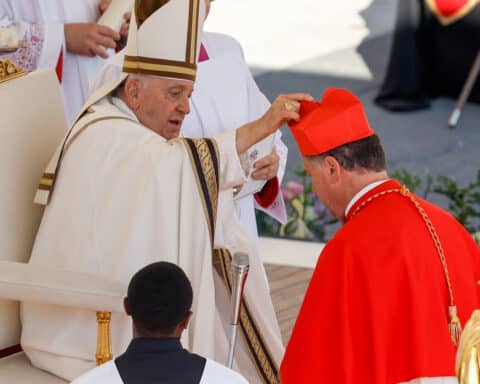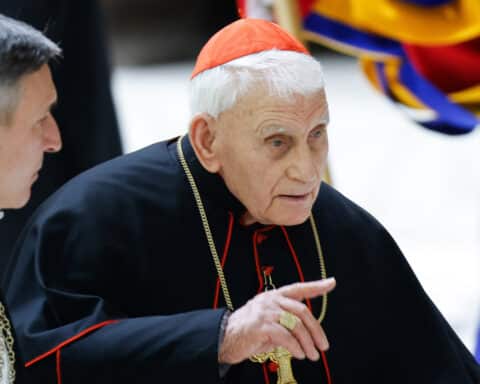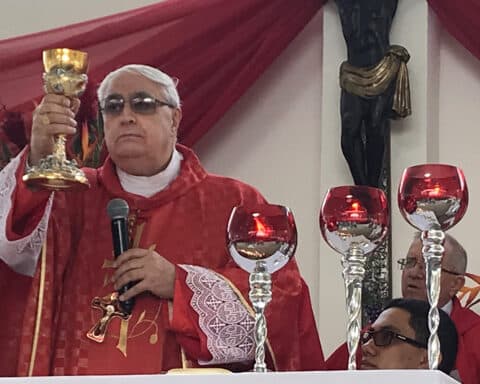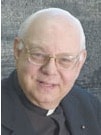
Communism died of its own faults and limitations 30 years ago. Religion in a dozen states once under the Russian Marxist heel was freed, able to exist in the open air. Without government pressure or interference, people could follow their consciences in terms of belief and faith. It was a great day.
It especially was great because of the many dark years that had passed — a half-century, in fact.
Pope St. John Paul II, the Church’s chief pastor at the time, used the fall of communism as an opportunity to recognize two priests as living martyrs: Father Miloslav Vlk in the Czech Republic and Father Ján Chryzostom Korec in Slovakia.
The pope appointed Father Vlk to be archbishop of Prague and Father Korec as bishop of Nitra, the first Slovak diocese, dating from St. Methodius in the ninth century. Promptly, he named them cardinals.
Their stories are inspiring — and challenging.
Both were adolescents when the Second World War began and Germany overtook their homelands. Five bitter years followed. Then, to replace the witch with the devil, Russia seized these territories, and really bad times came, in the sense of deprived human rights and personal freedom.
The Communists especially were aggressive in their attempts to erase the ancient Catholic culture of the Czechs and Slovaks. The Communists meant business, and they played for keeps. They targeted priests.
Jan Chryzostom Korec was ordained a priest, as a Jesuit, in 1950; Miloslav Vlk was ordained in 1968. Each of them, along with thousands of other priests, was harassed or even forbidden from acting in any priestly capacity. This deterred neither. They adopted fronts. Father Korec repaired elevators. Father Vlk washed windows.
Secretly, they moved from one person to another. Street corners and public parks were the sacristies and rectory parlors where they met with troubled souls. They celebrated Mass in basements, backrooms and attics, hush, hush, sentries at the door watching for police.
Elaborate vestments, stained-glass windows and splendid music hardly brought grandeur to these Masses, but the Masses were grand, in the faith of the priests and of the frightened people huddled around them.
Disguises and hearing confessions in alleys and at bus stops did not always work. Communist officials caught them. Providentially, they survived, forever true, while many others died, to their love for the Lord and, secondly, to their trust that God had called them to be priests.
Cardinal Vlk retired as Prague’s archbishop in 2010 after reaching the retirement age for bishops. He went to God in 2017. Cardinal Korec retired in 2005 and died in 2015.
These two late cardinals were among millions, literally, who have clung to their faith regardless of the consequences. Martyrdom is nothing new. The title of a book popular some years ago about English Catholics who bravely withstood efforts to remove Catholicism from England, “Come Rack, Come Rope,” said it all. (The rack was a fearful instrument of torture. Martyrs were hanged in an unspeakably gruesome manner.)
Whether the focus is a martyr who died last night in Africa, or Cardinals Vlk and Korec, or the American nuns in El Salvador in 1980, or St. Jose Luis Sanchez del Rio in 1928 — the Mexican teenager who would not renounce his Catholic faith — or St. Isaac Jogues in Canada in 1646, or St. Agnes in ancient Rome, Catholics should ask these questions: “Why were they willing to die? Why did they risk so much?”
If the questions are hard to answer, the stories difficult to understand, then another question should be asked: What am I missing?
Msgr. Owen F. Campion is OSV’s chaplain.

